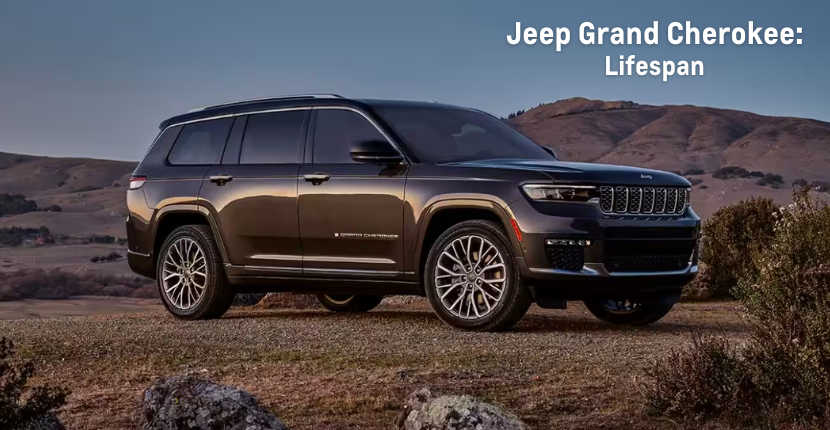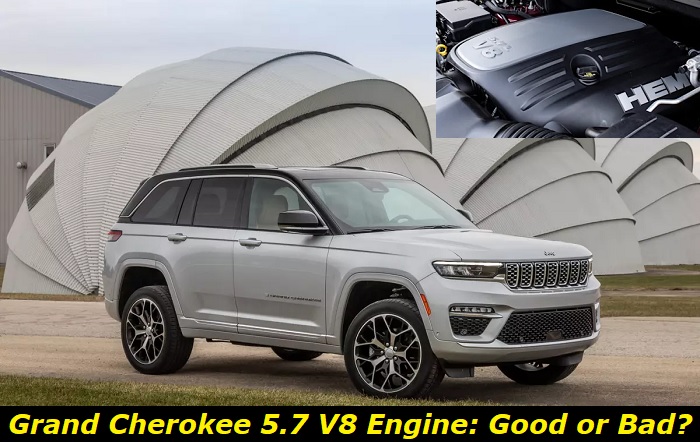The Longevity of the Jeep Cherokee: A Comprehensive Guide
The Longevity of the Jeep Cherokee: A Comprehensive Guide
Introduction
With great pleasure, we will explore the intriguing topic related to The Longevity of the Jeep Cherokee: A Comprehensive Guide. Let’s weave interesting information and offer fresh perspectives to the readers.
Table of Content
The Longevity of the Jeep Cherokee: A Comprehensive Guide

The Jeep Cherokee, a name synonymous with ruggedness and off-road capability, has been a staple in the automotive world for decades. But how long can you expect one of these iconic vehicles to last? While a definitive answer is impossible due to a multitude of factors, understanding the elements that contribute to longevity and the common issues encountered can offer a clearer picture.
Factors Influencing the Jeep Cherokee’s Lifespan:
The lifespan of a Jeep Cherokee, like any vehicle, is not predetermined. It’s a culmination of various factors, including:
- Maintenance: Consistent and diligent maintenance is the cornerstone of any vehicle’s longevity. Regular oil changes, fluid checks, and addressing minor issues promptly can prevent major problems down the line.
- Driving Habits: Aggressive driving, frequent off-roading, and heavy towing can accelerate wear and tear, potentially shortening the vehicle’s lifespan.
- Environmental Conditions: Exposure to harsh weather, salty roads, and extreme temperatures can negatively impact the vehicle’s components, especially the body and electrical systems.
- Previous Ownership: The vehicle’s history, including previous maintenance records and accident history, can provide valuable insights into its potential lifespan.
- Model Year and Generation: Different generations of the Jeep Cherokee have varied in terms of reliability and common issues.
Common Issues and Their Impact on Lifespan:
While the Jeep Cherokee is known for its durability, certain issues can arise over time, potentially impacting the vehicle’s lifespan:
- Engine Problems: The 4.0L straight-six engine, common in older models, is known for its reliability, but can develop issues with head gaskets, oil leaks, and valve train problems.
- Transmission Problems: Automatic transmissions, particularly in older models, can experience issues with slipping, rough shifting, and complete failure.
- Suspension Problems: The Jeep Cherokee’s suspension is designed for off-road use, but can suffer from wear and tear, leading to issues with ball joints, control arms, and shocks.
- Electrical Problems: Older models can be prone to electrical gremlins, including faulty sensors, wiring problems, and issues with the electrical system.
- Rust: The Jeep Cherokee’s body is susceptible to rust, particularly in areas with harsh weather conditions.
Understanding the Average Lifespan:
Based on anecdotal evidence and industry trends, a well-maintained Jeep Cherokee can typically achieve a lifespan of 200,000 miles or more. However, this is not a guarantee, and some vehicles may reach this milestone sooner or later depending on the factors mentioned above.
Frequently Asked Questions:
Q: What is the average lifespan of a Jeep Cherokee?
A: While a definitive answer is difficult, a well-maintained Jeep Cherokee can typically reach 200,000 miles or more. However, individual vehicles may experience a shorter or longer lifespan based on factors like maintenance, driving habits, and environmental conditions.
Q: How can I extend the lifespan of my Jeep Cherokee?
A: Regular maintenance, including oil changes, fluid checks, and addressing minor issues promptly, is crucial. Avoiding aggressive driving, excessive off-roading, and heavy towing can also contribute to longevity.
Q: What are some common issues to watch out for in a Jeep Cherokee?
A: Engine problems, transmission issues, suspension problems, electrical issues, and rust are common concerns, particularly in older models.
Q: Is a used Jeep Cherokee a good investment?
A: A used Jeep Cherokee can be a good investment if it has been well-maintained and has a clean history. However, it’s essential to thoroughly inspect the vehicle before purchasing and factor in potential repair costs.
Tips for Extending the Lifespan of Your Jeep Cherokee:
- Follow the recommended maintenance schedule: Regularly scheduled oil changes, fluid checks, and inspections can help prevent major problems.
- Address minor issues promptly: Don’t ignore warning lights or strange noises. Addressing small problems early can prevent them from becoming bigger and more expensive repairs.
- Drive responsibly: Avoid aggressive driving, excessive off-roading, and heavy towing, which can accelerate wear and tear.
- Protect against rust: Regularly wash and wax your Jeep Cherokee, and address any rust spots promptly.
- Invest in quality parts: When performing repairs, use genuine OEM parts or high-quality aftermarket parts.
Conclusion:
The Jeep Cherokee’s lifespan is ultimately determined by the care it receives. With proper maintenance, responsible driving habits, and attention to potential issues, a Jeep Cherokee can provide years of reliable service and off-road adventures. By understanding the factors that influence its longevity and taking proactive steps to care for your vehicle, you can maximize its lifespan and enjoy its legendary capabilities for many miles to come.








Closure
Thus, we hope this article has provided valuable insights into The Longevity of the Jeep Cherokee: A Comprehensive Guide. We hope you find this article informative and beneficial. See you in our next article!